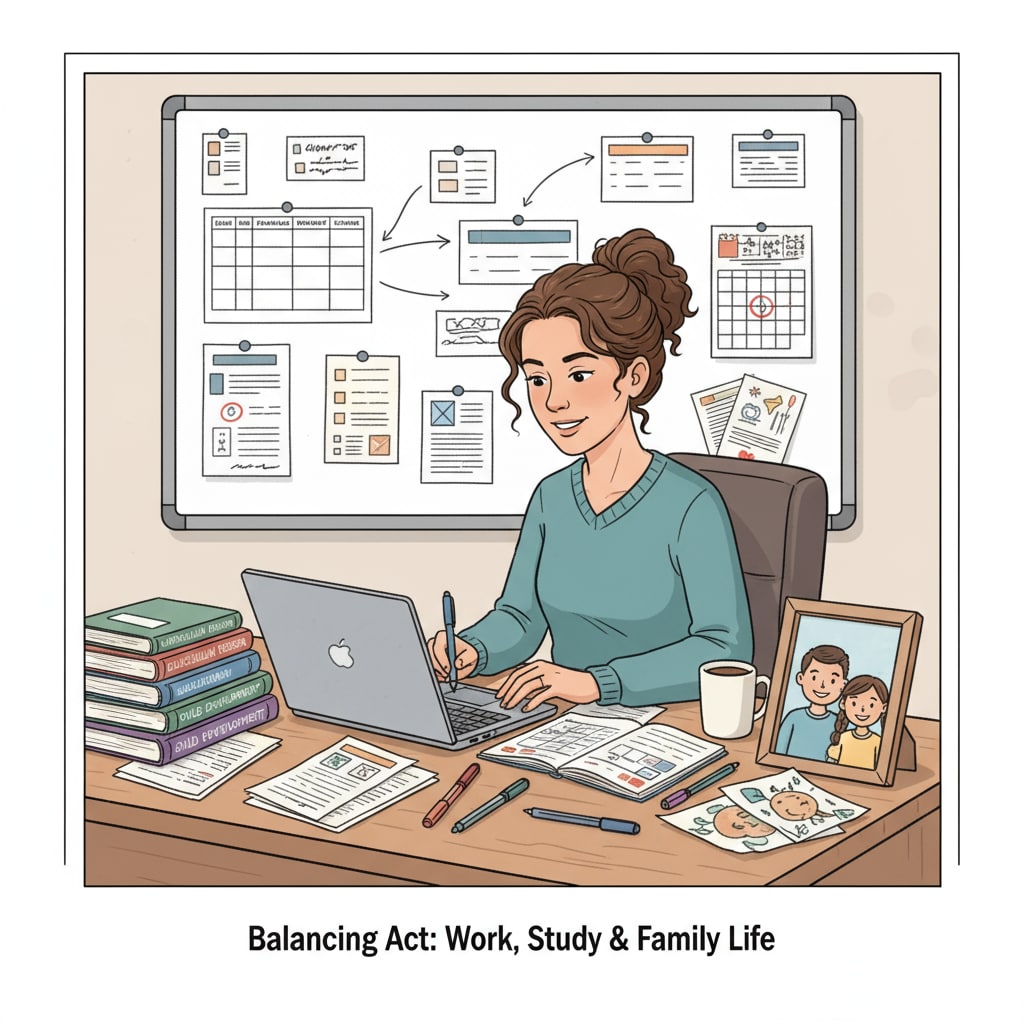Time management, work-study balance, and marital relations are three crucial aspects that K12 educators often grapple with. Juggling full-time teaching, continuous learning, and a fulfilling family life can be a daunting task. However, with the right strategies and mindset, it is possible to achieve harmony among these areas.

Mastering Time Management
Effective time management is the cornerstone of achieving balance. Teachers should start by creating a detailed schedule. Allocate specific time slots for teaching responsibilities, such as lesson planning, grading, and classroom instruction. For example, set aside a few hours in the morning for preparing engaging lessons. According to TeachThought’s guide on teacher time management, using a planner or digital calendar can greatly assist in organizing daily tasks. In addition, break down study time into manageable chunks. This could be an hour or two each evening dedicated to coursework or professional development. By doing so, educators can make steady progress in their learning without feeling overwhelmed.

Striving for Work-Study Balance
Maintaining a balance between work and study is essential. Teachers should set clear boundaries. When it’s time to focus on teaching, fully immerse in it and avoid distractions from study. Conversely, during study time, put work-related thoughts aside. For instance, if you’re working on an assignment, turn off work emails and notifications. Moreover, seek support from colleagues or study groups. Collaborating with peers can not only enhance learning but also lighten the workload. As stated in the NEA’s guide on teacher wellness, sharing experiences and resources with others in the same situation can be highly beneficial.
Finally, it’s important to remember that self-care is a key part of work-study balance. Take short breaks during long study or work sessions, get enough sleep, and engage in activities you enjoy. This will help prevent burnout and keep you motivated.
Nurturing Marital Relations
Marriage is a vital aspect of life, and educators need to invest time and effort into it. Make quality time for your partner. Plan regular date nights or simple evenings at home together. Communicate openly and honestly about your goals, stressors, and expectations. For example, share your plans for study and career development with your spouse and listen to their concerns. In addition, be supportive of each other’s interests and dreams. This mutual support will strengthen the marital bond.

In conclusion, achieving a balance among full-time teaching, further education, and marital relations is indeed feasible for K12 educators. By implementing effective time management strategies, striving for work-study balance, and nurturing strong marital relations, teachers can not only succeed in their careers but also enjoy a fulfilling personal life. Remember, it’s all about finding the right rhythm and making conscious choices to prioritize what truly matters.
Readability guidance: Using short paragraphs and lists helps summarize key points. Each H2 section provides a list-like structure. Passive voice and long sentences are controlled, and transition words are evenly distributed throughout the text to enhance flow.


